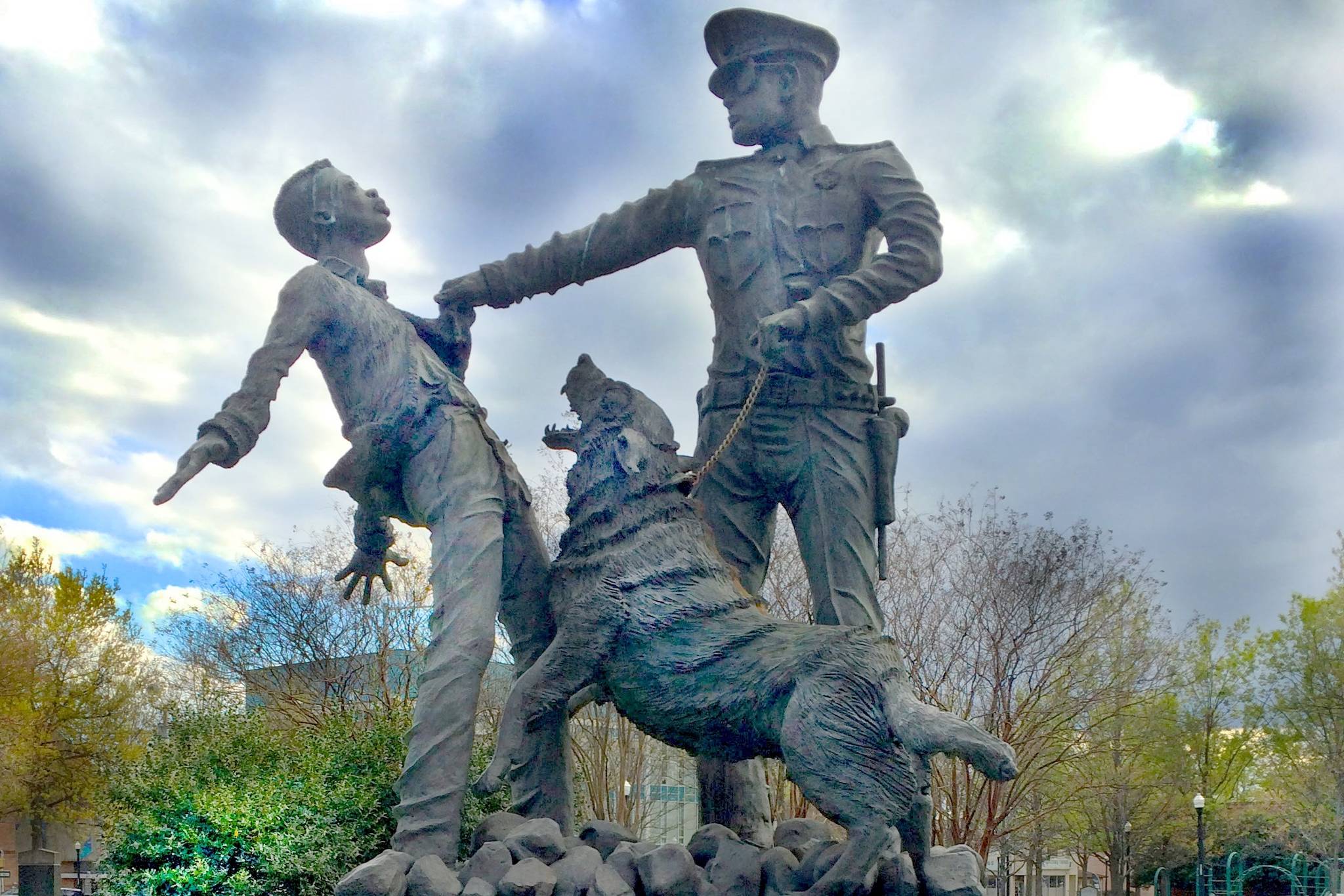I’m all for the removal of confederate statues. In today’s parlance, they’ve been props for a fake reading of American history so the true one can be denied.
But statues of slave-owning presidents don’t do that. If they offend, it’s because elements of history contained in them does. Taking them down doesn’t cancel that truth.
Before I continue, I must acknowledge that even my best effort to address the pain caused by centuries of racism would be woefully inadequate. It’s as foreign to me as outer space.
[Hundreds call for statue’s removal]
I grew up in a suburb north of Boston where even today the Black American population is less than 4%. The only overt racist I knew was my paternal grandmother. She had no qualms about littering a conversation with the N-word and refused pleas to stop. Fortunately, she lived in Detroit and only visited for a week every other year.
I know she despised Martin Luther King Jr. Statues of him anywhere must have offended her false claim to racial superiority.
I’m not equating that with the way Rosita Kaaháni Worl is offended by the statue of William H. Seward in front of the Dimond Courthouse in downtown Juneau. Hers is justified. But before I explain why I disagree with removing it, let’s travel south to Kelly Ingram Park in Birmingham, Alabama.
Located in the city’s Civil Rights District, the park has a statue of a police officer holding the leash of a dog attacking a young Black civil rights activist. Now, imagine a petition by white residents in Birmingham calling for the removal of that statue because they’re offended by the public reminder that their ancestors once held an inferior moral understanding of humanity. Or that it wrongly implies their parents or grandparents supported that racist culture.
Unfortunately, history is full of unpleasantries. And that statue is historically accurate. The 1963 photograph it was designed from is evidence of a common tactic police used against people who challenged the unjust laws of white supremacy.
It’s also a historical necessity to the statue of Martin Luther King Jr. in the same park. His legacy as a non-violent civil rights hero couldn’t exist without the true story the attack dog statue begins to tell.
Similarly, President Abraham Lincoln couldn’t be revered for ending slavery if it had been prohibited in the originally ratified Constitution.
In the hundred years between Lincoln and King, the southern states tortured the meaning of law and order to terrorize and murder Black Americans. That historical truth is what made the civil rights movement necessary.
Closer to home, Elizabeth Peratrovich would not occupy her place in history without Seward’s successful purchase of Alaska from Russia. Or without our country’s colonial expansion and the tragic dehumanization of Alaska Natives that came with it.
I can’t speak for Worl. But I would still argue that Seward’s statue is less offensive than the actual discrimination that was prevalent throughout the state. Removing it doesn’t further the cause of exhuming that dark element of our history from the glorified trappings of manifest destiny.
James Baldwin is another civil rights icon with a posthumous voice in this debate. Last year, a professor at Augsburg University in Minnesota was suspended for a classroom discussion about whether the N-word should be spoken when reading aloud an actual quote from one of Baldwin’s books.
His use of the slur was meant to provoke strong resistance to the lie of white supremacy. That cannot possibly be more offensive than the culture itself. But the mistake of sanitizing the sentence isn’t about the discomfort it stirs among Black students. It excuses white students from fully confronting the ugly hatred with which the word was historically used.
Baldwin demanded that we face the history that was, not what we wished it would have been. Seward’s statue reflects a true piece of that.
Let it stand. And let’s dedicate space modeled after Kelly Ingram Park where, along with a statue of Peratrovich, others can show why her moment in history is also necessary to a true reading of ours.
• Rich Moniak is a Juneau resident and retired civil engineer with more than 25 years of experience working in the public sector. Columns, My Turns and Letters to the Editor represent the view of the author, not the view of the Juneau Empire. Have something to say? Here’s how to submit a My Turn or letter.

